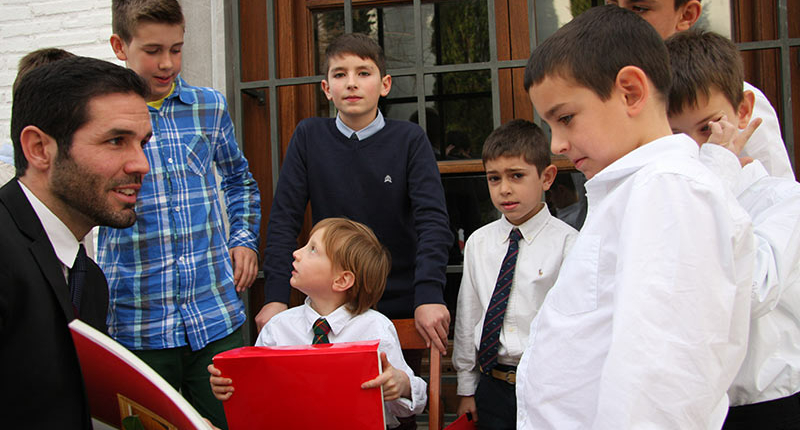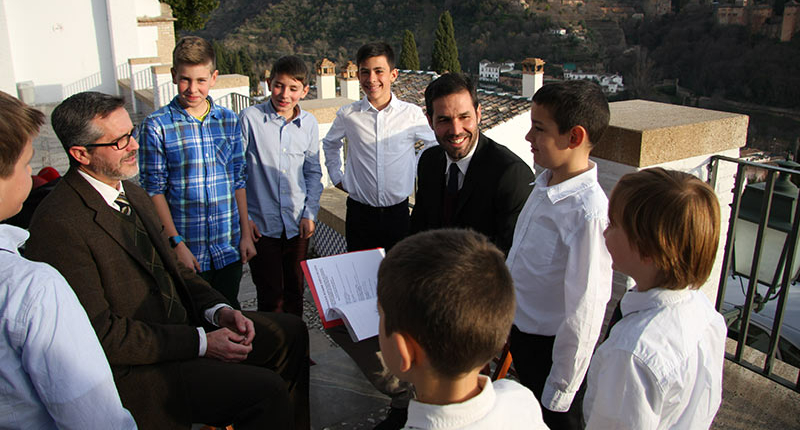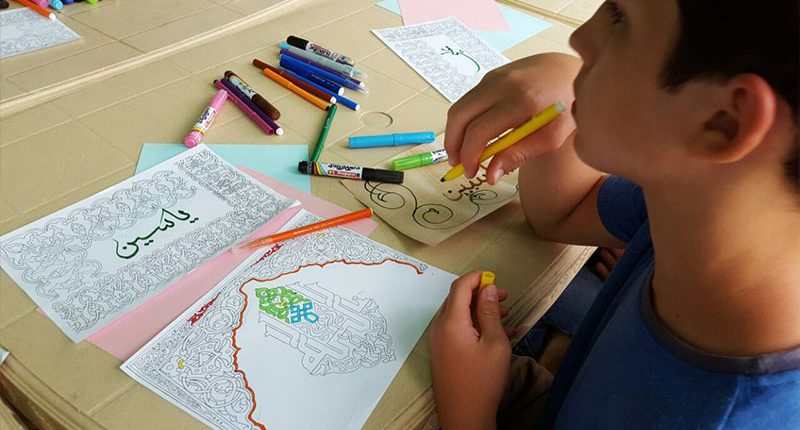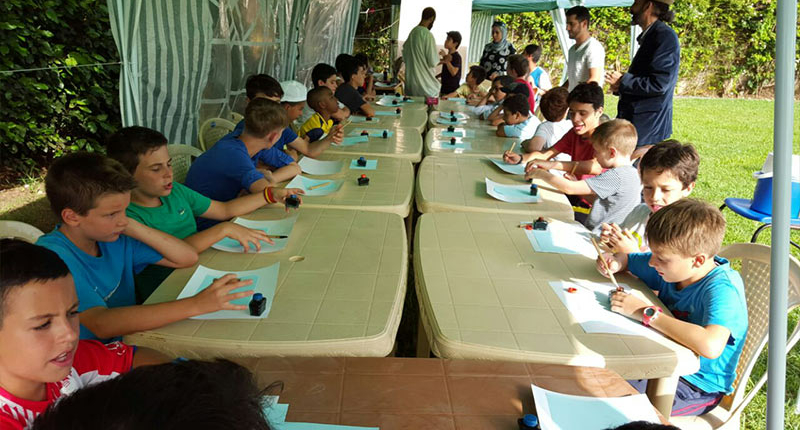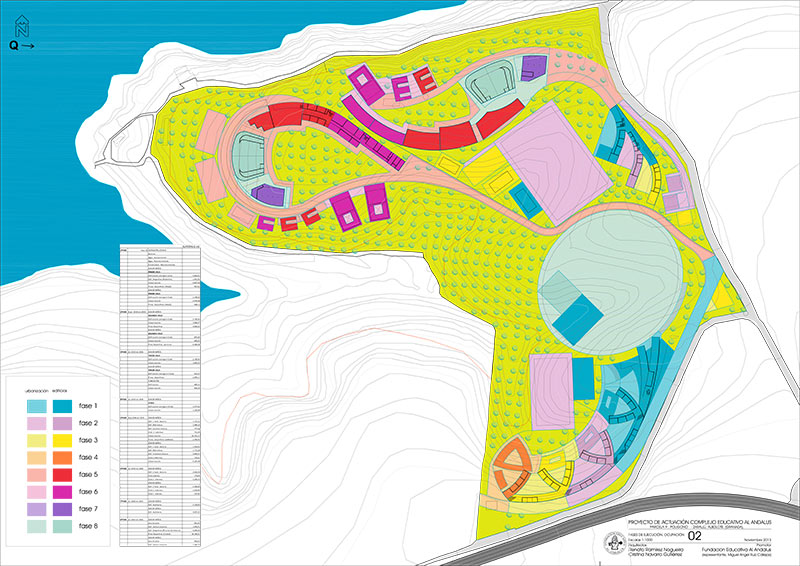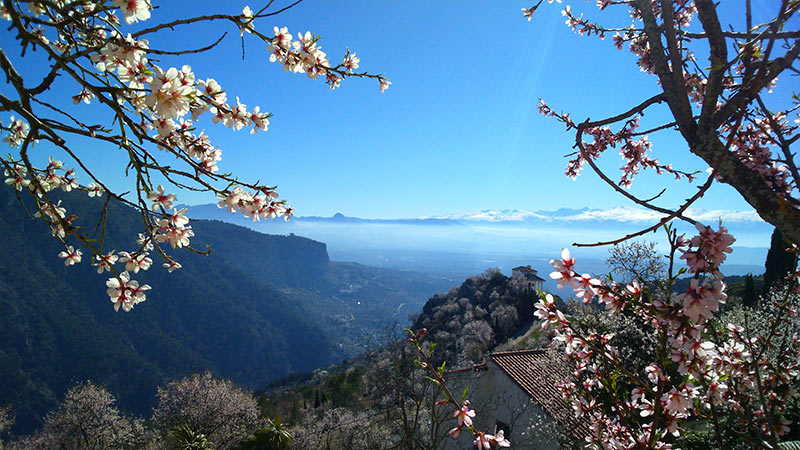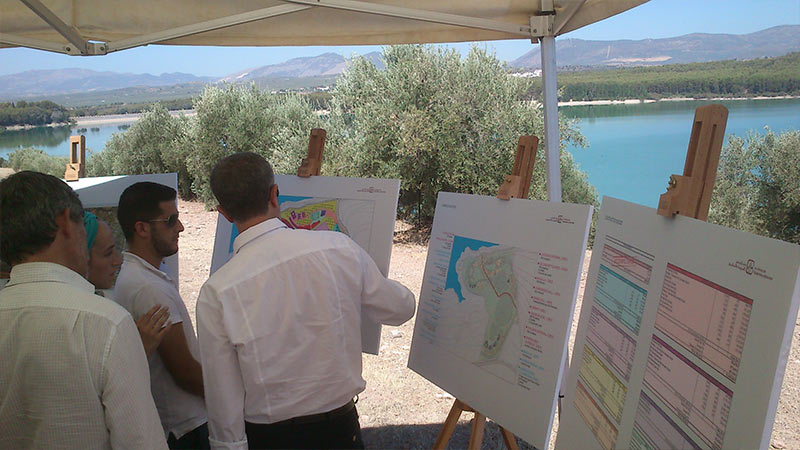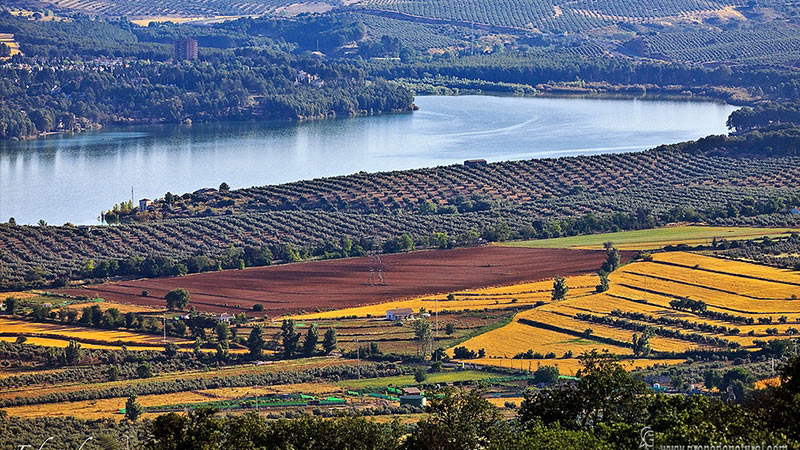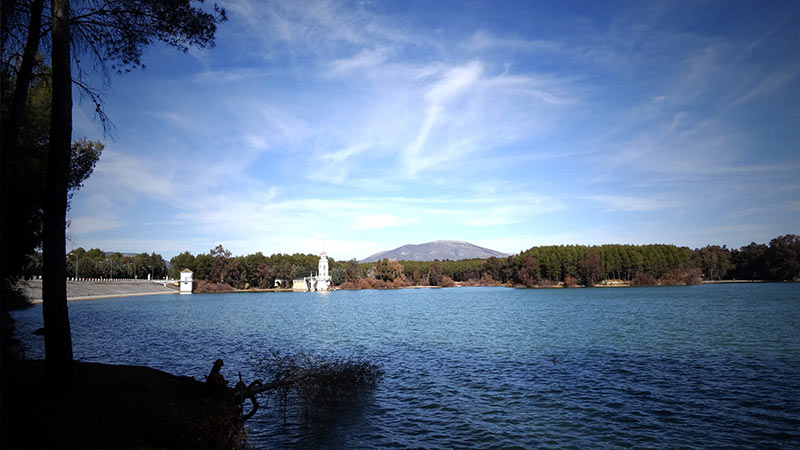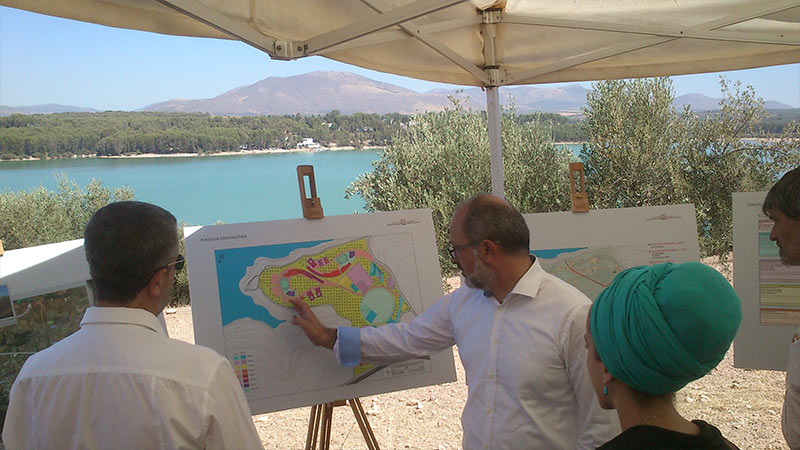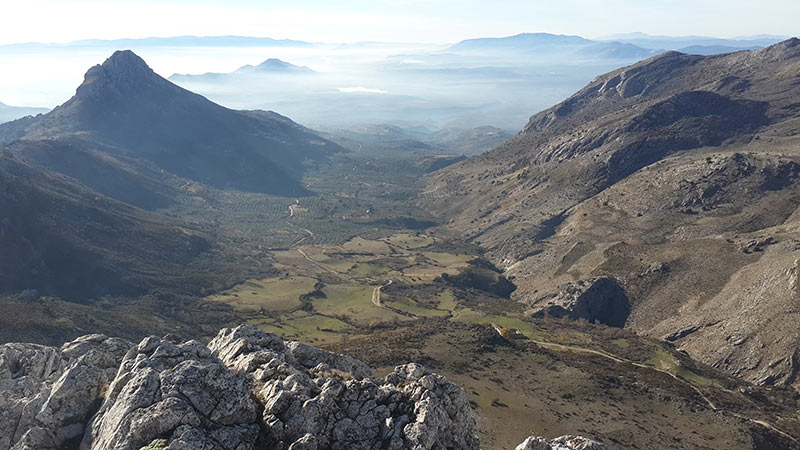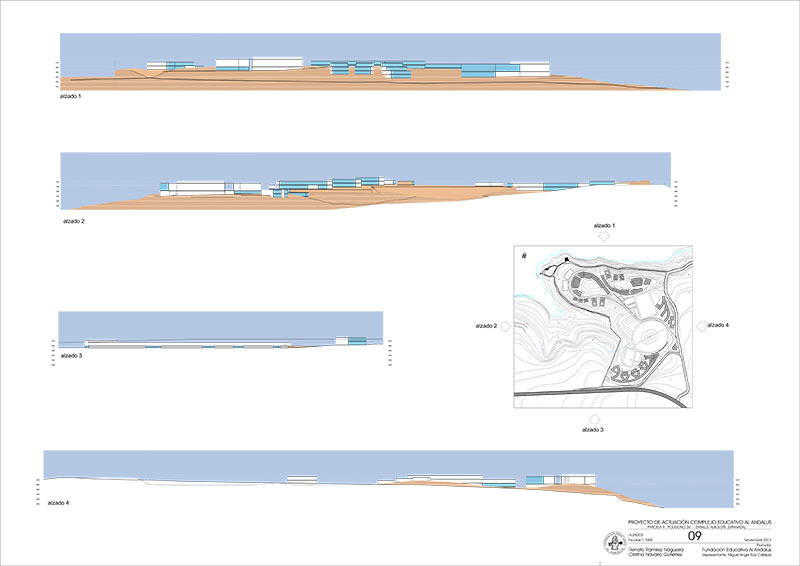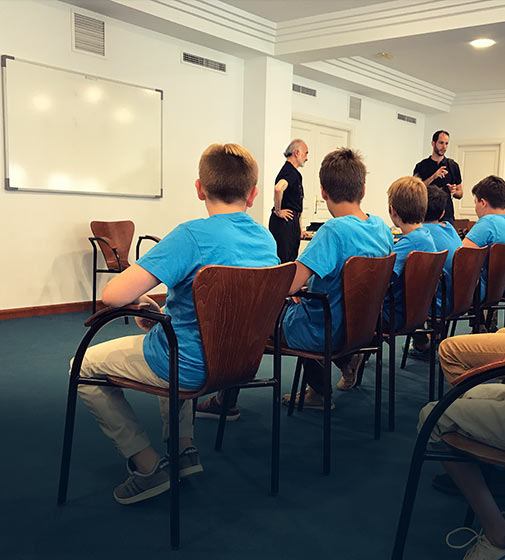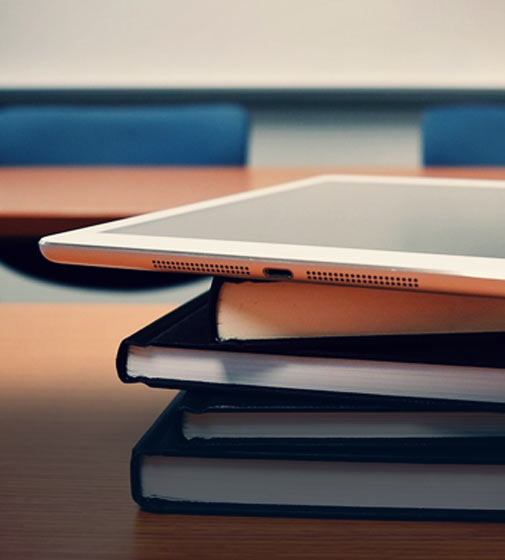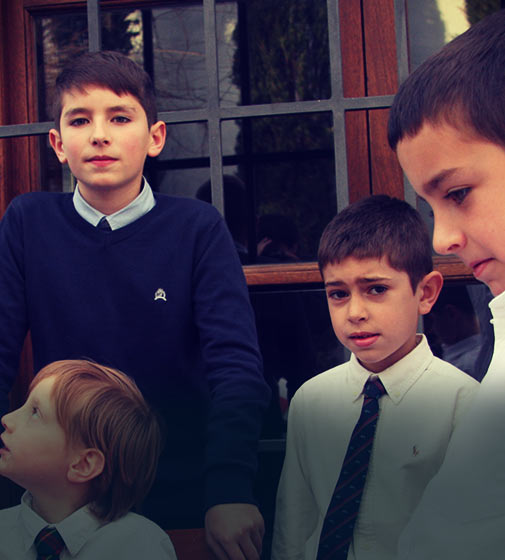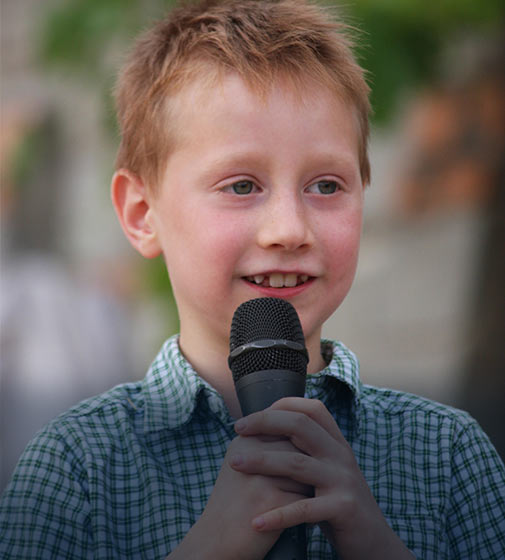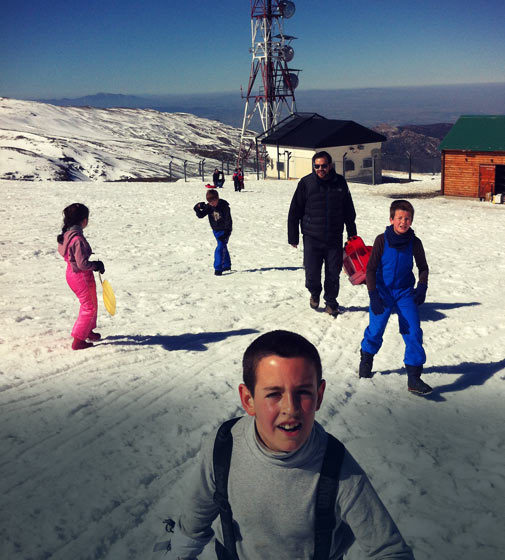Al Andalus School for Boys
Attaining the qualities of Futuwwa, nobility, the great manliness of the Messenger of Allah (peace and blessings upon him), Ibada (worship), generosity and bravery.
Refinement of Character – Strengthening the Individual – Sense of Brotherhood
Today young men are lacking clear role models. Society in general and education in particular no longer produce adequate and natural growth and development in boys. The result of this lack of adaptation to their nature is the waste of the great potential for learning as well as the continuous rise of behavioural disorder. Our educational task is to construct men with the sufficient existential courage to be able to transform the society that they live in.
Al Andalus School for Boys will have:
Junior School. Primary School for kids from 6 to 12 years old.
International Senior School: Secondary and Baccalaureate. Boys from 13 to 18 years old.
ESSENTIAL FEATURES
Quality of Teachers
Great care is given in the selection of teachers, who have to possess both fine academic and character qualities; a firm vocation and a clear conscience of their mission, apart from having high expectations in themselves and in the future generations. Great care towards every boy through a consistent method of attention by the mechanisms of academic and personal tutoring.
Cultural Wealth
The school is full of activities, which respond to the different interests of pupils and teachers, complementing the academic curriculum.
High Academic Level
A maximum of 15 pupils per class, a competent and dedicated staff of teachers and a teaching based on the establishment of a solid and complete intellectual base. This permits the achievement of an education of excellence in order to gain access to every kind of university or any other kind of knowledge acquisition that the pupils might desire.
Challenges
Young boys thrive on a pedagogy, which is demanding, consisting of challenges and aims to reach and surpass, as opposed to a regime of over-protection and laxity, which weakens and spoils them.
Education of all Talents
A balanced formation in all branches of knowledge. Humanities, languages, arts, experimental sciences and technology, while supporting every pupil to find his natural inclination towards his natural given talents.
Bilingualism
The highest possible level of Spanish and English. A curriculum in Spanish and English which will allow the students to complete their higher education in any of both languages given the bilingual nature of this school with students coming from all regions of the world.
Sports
Sports and physical activity have an enormous influence in the formation of character. This is why sports will have an enormous importance in the curriculum for Boys. Through the teaching of sports we can transmit the values of fair play, honour, teamwork, discipline, respect, humility, etc.
Spirit of Authority and Discipline
Relationship of respect and affection between teacher and pupil. Authority is a quality acquired in early childhood and is taken on as self-discipline. By applying the prefect system the pupils learn to assume responsibilities, to understand the inseparable relation between authority and the capacity to serve others.
System of Houses
A model of organisation, which fosters a relation of mutual help between boys of different ages, an improved attention for each pupil and the security of a group identity. It channels the inherent competitiveness of boys towards noble aims and facilitates the education at the table as well as the general cohabitation.
Al Andalus School for Girls
International bilingual school (English and Spanish)
Refine noble qualities of character.
Our main foundational quality is Iman, Trust in Allah. Building on Iman will shape the world perception of each student.
Today young women are faced with many challenges, values are disrupted and the women’s contribution to the family and children’s care is undervalued. After schooling students will have grown confident in being women and have a lucid commitment to the improvement of society with their inner centre of trust in Allah and the Sunnah.
Academic Education, Attentive and Individual Tutoring
Junior School:
We pursue a balanced growth with discovery and exploration, through exposition of variety of activities.
Senior School:
Here we want to deepen knowledge and unfold the person’s capacity to think along with emphasising the importance of social life and responsibility.
Academic:
We want to master the academic fields of languages, sciences and humanities that provide students with a university competent status.
Sports:
It is of prime importance to develop a healthy body by means of physical activities and a healthy diet.
Creativity:
Our pupils acquire insights and skills of art, music, movement, design and sewing within a special creative centre.
Nature’s Cycle:
Our pupils shall gain knowledge of nature and food through growing organic vegetables, learning to cook and the courtesy of dining.
Own character
The main objective of the school is the integral development of our children and youths in all aspects of their personalities. This is achieved by practicing the best possible social elements of transmission, based on human relations of mutual respect and esteem between master and pupil, being in harmony with the principles of the traditional Islamic education as well as aspiring to the highest values of the European heritage at the same time. By that we want to achieve:
• That the children develop a clear identity as believers, proud of their Deen and that they firmly establish in their hearts love for Allah and His noble Messenger, may Allah’s peace and blessing be upon him.
• That they succeed to build an intellect capable of comprehension and discernment; a vigorous and healthy body; a mature and flourishing spirit; an elevated level of Adab (courtesy of the heart) as well as the competitive vigour to overcome obstacles.
• That they acquire a balanced personality, healthy and positive, while accomplishing the formation of a good character.
• That they obtain a good academic formation, allowing them to construct their future with sufficient aptitude, with skills and qualifications.
• That they are capable of getting along in today’s world, particularly with respect to acquiring other languages (English and Spanish) and the use of new information and communication technologies.
• That the pupils develop aptitudes to practice professional skills
• That they discover and develop their unique talents.
• That they acquire a strong sense of responsibility and participation in the care for and improvement of the society and the world they live in.
Location of the Terrain
The village of Albolote is located in the area of Granada called La Vega, an extensive hilly landscape of fertile land, at a distance of seven kilometres from the urban centre of Granada, the city of the world-famous Alhambra Palace.
Albolote has 15.563 inhabitants and its activity is still strongly connected to agricultural tradition (olives and horticulture), although combined with the development of the sector services.
Surrounded by magnificent places, Albolote offers visitors numerous possibilities to experience nature. The nearby Sierra Elvira mountain is crowned by a watchtower (“El Torreón”) from the 13th century, which was part of the defensive system of the Muslim Nasrid Kingdom of Granada.
The birth of Albolote as village dates back to the Nasrid period. It is related to the abundance of oak trees in its surroundings. In fact, its name in Arabic comes from ‘al-Bulut’ meaning ‘oak’ or ‘holm oak’. An Andalusian Muslim historian mentions a settlement in this place, which he considers a farmhouse (alquería), belonging to the Cora (territorial zone of Al-Andalus) of Elvira.
The Almoravid Emir of Granada in the 11th century, Abdallah al-Albaluti, was from Albolote. He was also the author of a book of botanical science called “Flower of the Garden and Delight of the Intellect” (Zahr al-bustan wa-nuzhat al-adhan).
Next to Albolote is the reservoir of Cubillas, a large artificial freshwater lake, surrounded by Mediterranean pines and oaks forests. A perfect place to practice water sports, football, hiking… The Muslim community has chosen this artificial lake of Cubillas for many years for the celebration of the ‘Eid feasts, at the end of Ramadan and at the end of the Hajj pilgrimage, for community picnics and outdoor meetings.
Together with its attractive landscape and botanical richness comes its historical and archaeological interest, being surrounded by remains of Roman and Muslim cities (the ancient Medina Elvira) and the relicts from the Stone Age. Albolote is also part of what has been called “The Route of the Nazarís”, a tourist and cultural project of the Legado Andalusí (Andalusian Heritage), today’s cultural foundation of Andalusia.
The terrain is an estate of olive trees totalling 165,000 m2. Located next to the lake, only 15 minutes away from the city centre, it has excellent communications and enjoys a beautiful landscape in its environment.
